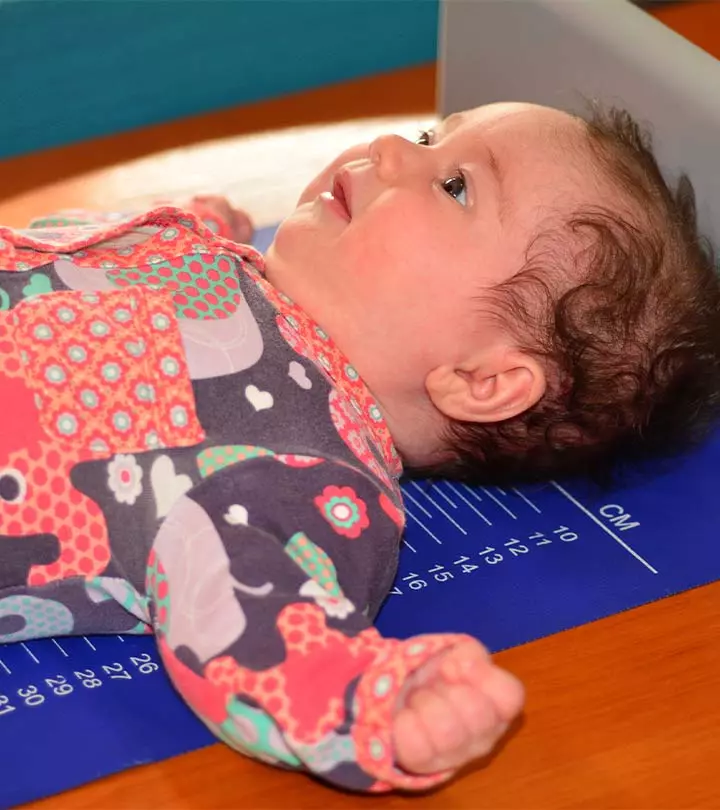

Image: Shutterstock
Pregnancy is one of the most crucial periods that you will be going through, and it is a known fact that you’ll have to live more cautiously during these nine months compared to the other days. Here, you’re not only responsible for your well-being but for your baby’s too. So, even when you’re just living your normal day-to-day life, you’ll have to practice caution and care. Everything you do has to work in favor of you and your little one.

You will be advised by people about things you should not do when you’re pregnant. And then, there are things that you shouldn’t do, which aren’t that well-known and you probably haven’t heard of them before. Nevertheless, it’s important for you, as the mother, to have the know-how so you don’t put yourself and your baby at any kind of risk. And to help you in this beautiful journey, we’ve put down the strict “no’s” that will make your life easier! So, here you go:
1. Being Lazy And Not Doing Anything
Don’t equate resting with laziness or staying active with exerting yourself. It will help if you continue doing your daily tasks. Along with that, include a yoga routine, walk every day, or take some time out for things you enjoy doing. These can help you manage your mood swings, morning sickness, sleep, and other health problems you may face. Also, too much sitting can lead to health issues such as unnecessary weight gain, gestational diabetes, and more aches and pains. Inactivity is dangerous in regular life as well as in pregnancy. Aerobics, cycling, strength training, and swimming are other good options to follow. Make sure you check with your doctor to see what works out best for you (1).
2. Smoking Tobacco, And Drinking Alcohol And Caffeine
The moment you smoke, consume alcohol, or have caffeine, they enter your placenta and directly affect your baby. The risk of stillbirth, premature delivery, miscarriage, lower birth weight, and Sudden Infant Death Syndrome (SIDS) gets higher. Alcohol can also contribute to physical and intellectual abnormalities as well as poor growth in the child and smoking can negatively affect your ability to conceive again in the future and create respiratory issues. Additionally, excessive amounts of caffeine can cause issues such as congenital disabilities, increased heart rate, low birth weight, and preterm birth problems. Replace alcohol and caffeine with other healthy drinks such as coconut water, fruit juices, and plain water. If you’re addicted to nicotine and tobacco, you may find it difficult, but it is necessary to stay away from smoking during the term of your pregnancy (2), (3), (4).
3. Consuming Certain Foods
Raw meat, deli meat, raw fish, raw eggs, raw sprouts, unpasteurized milk, cheese, certain fruit juices, and processed junk food should be avoided entirely as they cause birth complications. Many types of processed food are often devoid of any nutritional value and just filled with sugar, empty calories, and unhealthy fats. This won’t help your baby’s nutritional needs and will cause more harm than good. Instead, eat life-supporting food loaded with nutrients such as fresh fruits, vegetables, and well-balanced home-cooked meals. The consumption of junk food will also lead to unnecessary weight gain. Unpasteurized and raw food is home to bacterial infections and leads to foodborne illnesses like listeriosis and toxoplasmosis. These are serious health risks for both mother and baby (5).
Pasteurization is a great way to kill bacteria without losing its nutrient value. To avoid risks, eat cheese, eggs, and milk only after pasteurization. The bacteria present in sprouts are impossible to get rid of with just washing, so eat them only after cooking (6).
4. Indulging In Risky Activity
Pregnancy can get boring sometimes, particularly if you’re an adrenaline junky. But all your adventures will have to take a back seat for nine months and a while after that. Risky activities such as skiing and rock climbing, activities that cause jerky movements such as roller coaster rides, and sports that involve physical contact and exertion such as boxing and football must be avoided at all costs.
Jerky movements and falling can cause placental abruption that can affect the growing baby’s brain. Because of a shift in gravity during pregnancy, even a minor fall can cause injury. In the later months, you should avoid activities that cause a lot of jarring motion. Heavy lifting can also be harmful as your joints are less strong at this point, and it puts more pressure on your back. It can put you into premature labor. Frequent lifting may, in some cases, also lead to a miscarriage (7).
5. Soaking In A Hot Bath Tub
Hot water baths tend to increase your temperature levels. High-temperature levels are associated with brain and spine defects in the baby. Sauna baths, getting into a hot tub or bath in any form with hot water is never recommended for a pregnant woman. We agree that a nice hot water bath is a great way to relax your muscles and feel comfortable but remember to keep the water warm and not hot. Also, avoid certain activities such as hot yoga, pilates, going out in extreme heat, or overexposure to the sun, as all this can also cause a rise in body temperature. If body temperature has risen for any reason, make sure to cool it down with the right kind of food and plenty of fluids. Make sure to strike a balance; neither too hot nor too cold is beneficial for your growing fetus and you (8).
6. Getting Stressed All The Time
The stress and anxiety you face can have a significant impact on your baby. Your state of mind determines your baby’s current and future state of wellness too. It’s important to stay calm, refrain from yelling and losing your mind constantly. Negative emotions and depression affect a baby’s immune system and brain. For some, an unfavorable environment can be inevitable in the office and home. To manage that stress well, do things that will make you feel uplifted, like sleeping enough, resting enough, meditating, yoga, walking, or pursuing your hobbies. In case unsettled emotions last for more than two weeks, reach out to your doctor for help. It’s true that happy mommies have happy babies (9).
Now that you are aware of things and activities that are better avoided and refrained from, exercise caution and take the necessary precautions. We can’t claim that our list is exhaustive because there will still be many other things which you need to be careful of. Whenever you are doubtful of certain things, it’s best to ask your doctor before proceeding because women who have weak immunity or a higher risk of premature birth will have to adhere to additional precautions as they are prone to more complications. Do you have more to add to the list? Let us know in the comments below!
References
- Pregnancy And Exercise
https://www.ncbi.nlm.nih.gov/books/NBK430821/ - Cigarette smoking during pregnancy
https://pubmed.ncbi.nlm.nih.gov/18236291/ - Alcohol Use in Pregnancy
https://www.ncbi.nlm.nih.gov/pmc/articles/PMC7061927/ - Impacts of Caffeine During Pregnancy
https://www.ncbi.nlm.nih.gov/pmc/articles/PMC7035149/ - Food safety during pregnancy
https://www.ncbi.nlm.nih.gov/pmc/articles/PMC2920771/ - Toxoplasmosis in pregnancy
https://pubmed.ncbi.nlm.nih.gov/8513640/ - Guidelines for Physical Activity during Pregnancy: Comparisons From Around the World
https://www.ncbi.nlm.nih.gov/pmc/articles/PMC4206837/ - Hot tub use during pregnancy and the risk of miscarriage
https://pubmed.ncbi.nlm.nih.gov/14607798/ - Effects of prenatal stress on pregnancy and human development: mechanisms and pathways
https://www.ncbi.nlm.nih.gov/pmc/articles/PMC5052760/
Community Experiences
Join the conversation and become a part of our nurturing community! Share your stories, experiences, and insights to connect with fellow parents.


















